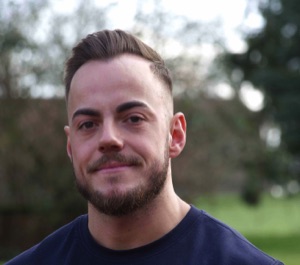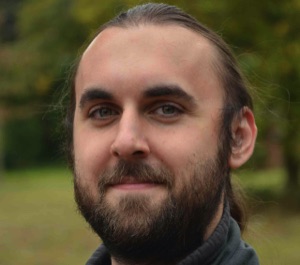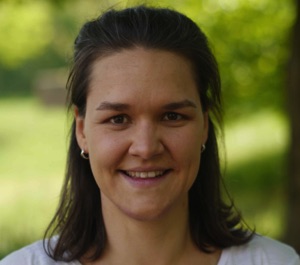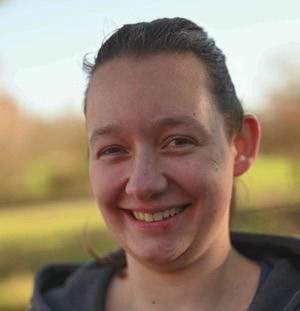Annika Buhr, PhD student
abuhr (et) uni-osnabrueck.de
I studied Biology at the University of Osnabrück. After finishing my Bachelor thesis in the Plant Physiology department, I joined Heiko Harten as a supervisor for my Master thesis in the Zoology-Developmental Biology group. Since 2018 I am working towards my PhD, focussing on the role of small peptides regulating the calcium transporter SERCA. The project is funded by the SFB944-DFG.
Maren Janz, PhD student
mjanz (et) uni-osnabrueck.de
I received my BSc in Biology at the University of Potsdam, working on transcription factors in yeast. Afterwards I continued my education at the University of Osnabrück where I became fascinated by working with Drosophila as a model system. I gained my MSc with a thesis on cardioactive peptides in Drosophila. Since 2019, I am a PhD student in the group. My research is focussed on proteins of the endolysosomal pathway and their role in nephrocyte physiology, a project performed in collaboration with the biochemistry section of our institute. The project is funded by the DFG.
Christian Meyer, PhD student
chrimeyer (et) uni-osnabrueck.de
I studied Biology at the University of Osnabrück, receiving my BSc and MSc for my studies on polychaete evolution and ultrastructure. The work was supervised by Günter Purschke. Afterwards I started my PhD project on analysing the differentiation and function of the intracardiac valve cells in Drosophila. The valve cells regulate directional hemolymph flow from posterior to anterior, allowing the distribution of nutrients, signaling peptides etc. to the surrounding tissue and they are important for correct systolic and diastolic heart function. My research focusses on the identification of genes that affect valve cell specification, differentiation and function. The project is funded by the DFG.

Jonas Olbrich, PhD student
jonas.olbrich (et) uni-osnabrueck.de
I studied biology at the Julius-Maximilians Universität Würzburg where I received my bachelor and master degree. During my bachelor‘s thesis I used transmission electron microscopy (TEM) to research the ultrastructure of mice hippocampi. In the time of my master‘s thesis I studied by using super resolution microscopy (e.g. dSTORM) and expansion microscopy (ExM) the structure of the SNARE-complex in primary mice neurons. My PhD Project is funded by the DFG. There I study the myoblast fusion in the absence of fzr, an APC/C adaptor protein, during the development of Drosophila melanogaster. I will focus my work on using state of the art microscopy techniques like TEM with high pressure frozen and freeze substituted (HPF/FS) samples and live cell imaging techniques like confocal laser scanning microscopy (cLSM) and lattice light sheet microscopy (LLSM). The project is funded by the DFG.


PhD students at the lab
Franziska Flottmann, PhD student
franziska.flottmann (et) uni-osnabrueck.de
I studied Biochemistry at the University of Bielefeld, where I mostly focussed on protein purification and CRISPR-Cas experiments. I joind the Zoology-Developmental Biology group in Osnabrück after finishing my Master´s thesis on cardiomyopathy associated DES mutations at the "Erich and Hanna Klessmann" institute in Bad Oeynhausen. In Osnabrück I am working towards my PhD since 2023 on understanding endocytosis in the labyrinth channel system of Drosophila melanogaster nephrocytes, a model for studying human kidney function. the project is funded by the DFG (SFB 1557)
Kai J. Jürgens, PhD student
kjuergens@uos.de
I studied Biology and English at the University of Osnabrück, where I got my B.Sc and M.Ed. After finishing my master's thesis in the Paululat Lab, I started my PhD project in cooperation with the "Erich and Hanna Klessmann Institute" in Bad Oeynhausen. In collaboration with the Bad Oeynhausen group of Prof. Hendrik Milting, the project aims at providing a deeper understanding of the point mutation in the human protein TMEM43, which leads to severe cardiomyopathies. These can, in part, be replicated in the Drosophila homolog CG8111. My aim is to understand the mechanisms of the mutation in the fly to benefit the research of the human disease. The project is funded by the DFG.





